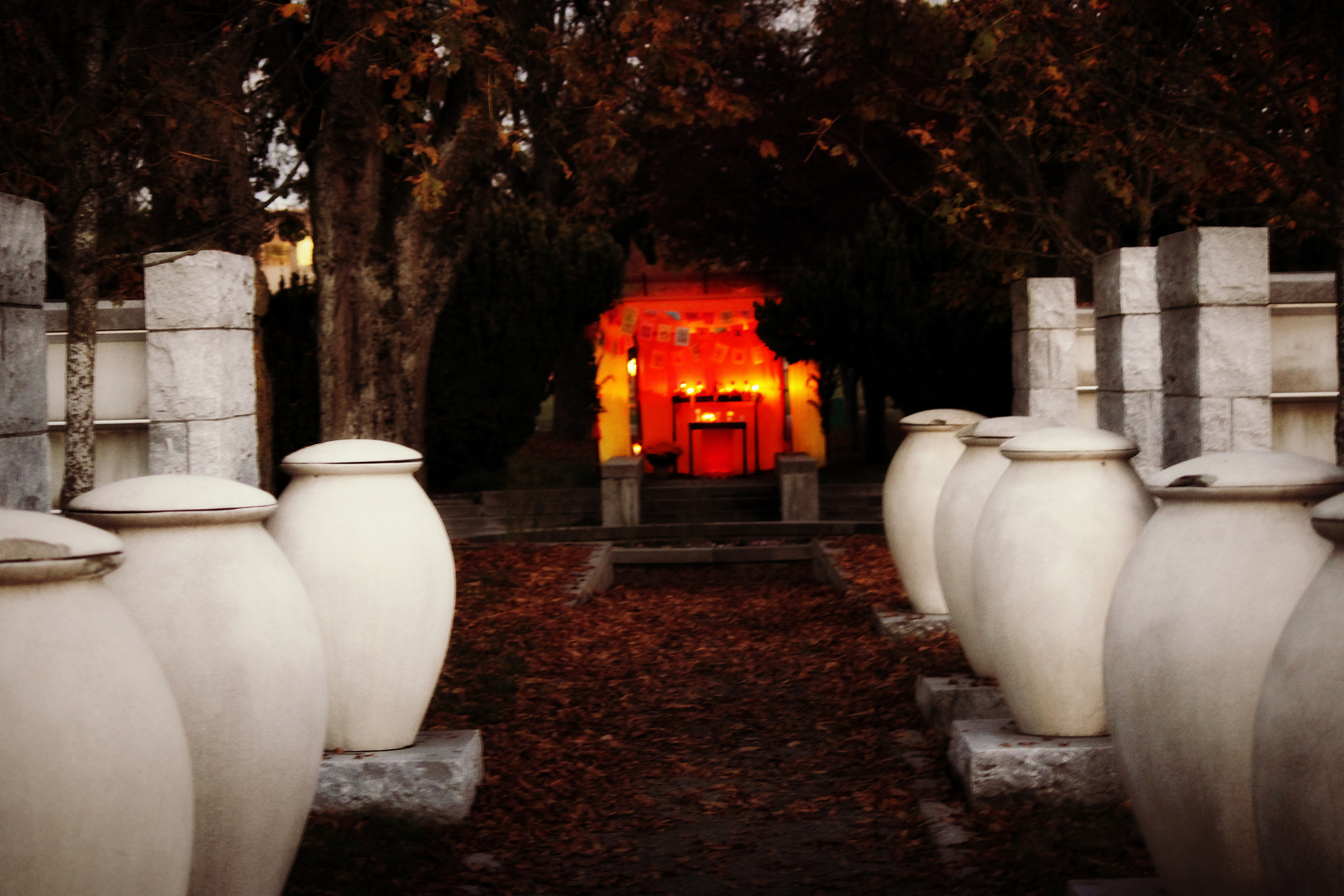 His mother used to tell him graveyards were no place for a little boy.
His mother used to tell him graveyards were no place for a little boy.
His mother told him many lies.
It has been six years since he came to live between the tall white urns; four years since the urns have been taller than he; two years since he could leapfrog one without scrapping an elbow or a knee; six months since he outgrew leapfrogging altogether; and one week since he discovered that if he sat on the top of one he could stretch his legs all the way to the next, and balance precariously there, throwing a smile to the girl with the blue bow in her hair who brings flowers to her father every Saturday afternoon.
The girl with the blue bow in her hair has become an obsession of his.
She isn’t the first visitor to his graveyard. Lots of people come, and lots of people go, and they have grown used to seeing him; sometimes as a shadow just to the left of their vision, sometimes as a fellow mourner, taking flowers from the overly visited graves and redistributing them to the lonely markers, sometimes even as a graveyard worker, when he borrows Jimmy or Randolph’s tools just for a lark. Some of these visitors have interested him before. The professor who liked to sit on the bench and read poetry, for instance, proved the next best thing to school. The woman who picniced on her husband’s grave and told him all the minutiae of her life was far more entertaining than the latest blockbuster! Old Mrs. Tavershall, who still comes every second Sunday to trim the grass and leave flowers on her husband’s grave, may he rest in peace, gone these past forty years, what a burden old age is. But there’s something different about the girl in the blue bow.
He dreams of the girl in the blue bow.
She doesn’t always wear a blue bow, of course. People can rarely be defined by such narrow terms. Sometimes she wears a pink bow. Once she wore no bow at all, and it angered him so much he broke the branch off his favourite tree, and spent three weeks making up for it by singing Mozart to it every day. She doesn’t talk to her father when she leaves the flowers, which doesn’t anger him so much as frustrate him; he wants to hear her secret thoughts. He likes peering into the windows of people.
He likes the graveyard for a number of reasons. He likes the way bullies are afraid to go there at night; likes how easy the night guard is to avoid, but how everyone else seems to run afoul of him and get chased out. He likes how some people leave food on the graves, and some people leave stones, even though he can’t eat the stones. He likes how the mausoleums stay dry and cool even in summer storms, and how the little cottage where the grave-tending tools are kept is heated even at night, so he can sleep there in winter as long as he’s awake by five a.m. He likes that he was right, that no one thought to look for him here. But most of all, at least lately, he likes the girl with the blue bow in her hair.
He believes he will spend the rest of his life in the graveyard. He has his thoughts for company, and he can sneak out to the bin of the grocery store two blocks down for supplies; though he hates to leave at all these days. But lately he wonders what life is like beyond the row of white stone urns; how people live with roofs over their heads, without the stars to wink them to sleep every night. He wonders if he learned to play guitar would the girl with the blue bow smile back at him as he watches her walk under the weeping willow; if he asked her out to dinner, would she say yes?
He loves the graveyard. No one screams at him here, or calls him names. There are no monsters in the shadows under closed doors, nothing to be afraid of. But the girl with the blue bow has changed so much. She has changed him, and he is only now starting to realise it. Will the graveyard seem smaller when she’s gone? Will the sky seem pale compared to the memory of her blue bow?
And what – what what what – is he going to do about it?
Image courtesy of Hayley Mechelle Bouchard. Her work can be found at Little Cat Photography, with more information about Hayley on Our Contributors page.